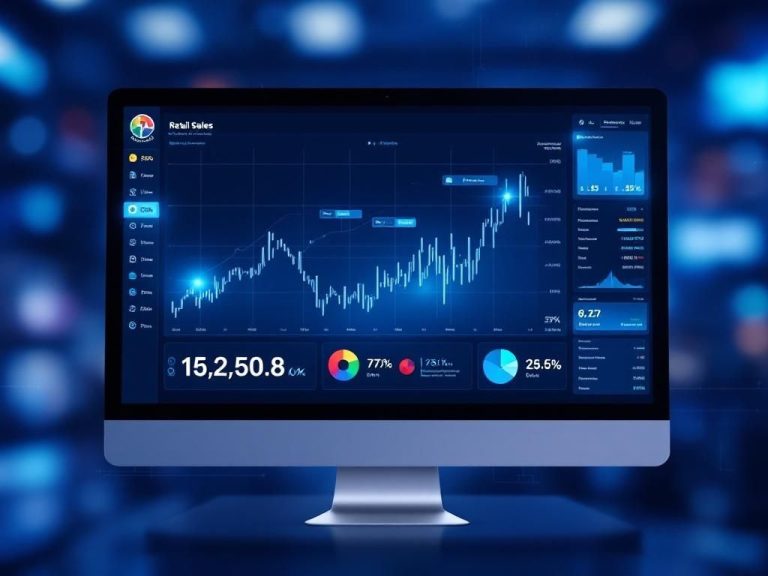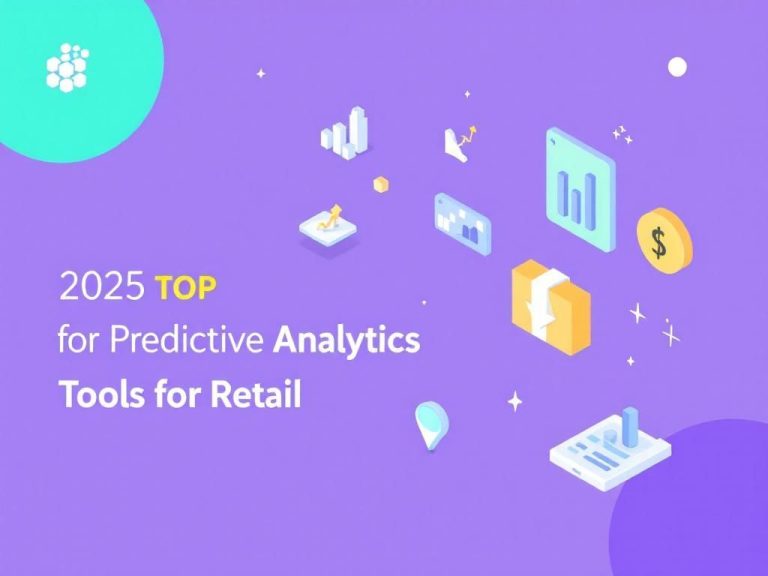As the retail landscape continues to evolve, the need for predictive analytics becomes increasingly vital. Retailers are harnessing data-driven insights to enhance customer experiences, optimize inventory management, and increase operational efficiency. By 2025, the predictive analytics platforms will have evolved significantly, integrating advanced technologies such as artificial intelligence (AI) and machine learning (ML). This article explores the top predictive analytics platforms that are poised to revolutionize the retail sector in the coming years.
Understanding Predictive Analytics in Retail
Predictive analytics refers to the use of various statistical techniques, including machine learning and data mining, to analyze current and historical facts to make predictions about future events. In retail, this can involve evaluating customer behavior, sales forecasts, inventory levels, and market trends.
Key Benefits of Predictive Analytics
- Enhanced Decision Making: Retailers can make data-backed decisions that reduce risk and increase profitability.
- Improved Customer Experience: Understanding customer preferences allows for personalized marketing and improved service.
- Optimized Inventory Management: Predictive analytics helps maintain optimal stock levels, reducing both excess inventory and stockouts.
- Market Trend Forecasting: Retailers can anticipate market changes and adapt strategies accordingly.
Criteria for Choosing a Predictive Analytics Platform
When evaluating predictive analytics platforms, retailers should consider several critical factors:
- User-Friendly Interface: The platform should be intuitive and easy to navigate.
- Integration Capabilities: It should seamlessly integrate with existing systems like CRM, ERP, and POS.
- Advanced Analytics Features: Look for platforms that offer deep learning models and AI capabilities.
- Scalability: As your data grows, the platform should be able to expand capabilities.
- Cost-Effectiveness: Assess the pricing structure to ensure it fits within your budget while meeting your needs.
Leading Predictive Analytics Platforms for Retail in 2025
Here’s a detailed look at some of the top predictive analytics platforms that will lead the retail industry by 2025:
1. Salesforce Einstein Analytics
Salesforce Einstein Analytics harnesses AI to provide actionable insights tailored for retail professionals. The platform offers robust dashboards, predictive modeling capabilities, and seamless integration with Salesforce’s customer relationship management (CRM) system.
Key Features:
- AI-Powered Insights
- Real-Time Data Processing
- Customizable Dashboards
2. IBM Watson Analytics
IBM Watson Analytics is renowned for its cognitive capabilities that help retailers interpret complex data sets. The platform’s ability to provide insights with natural language processing makes it accessible for data-driven decision-making.
Key Features:
- Natural Language Queries
- Predictive Insights
- Data Visualization Tools
3. SAS Analytics
SAS Analytics is known for its advanced statistical analysis and predictive modeling features. With a long-standing presence in the analytics field, SAS offers comprehensive solutions for retail that focus on consumer behavior and sales trends.
Key Features:
- In-Depth Customer Segmentation
- Fraud Detection Algorithms
- Forecasting and Planning Tools
4. Microsoft Azure Machine Learning
Microsoft Azure Machine Learning provides a cloud-based environment for building predictive models. Retailers can leverage Azure’s powerful computing capabilities to process large volumes of data quickly and efficiently.
Key Features:
- Scalable Infrastructure
- Integration with Microsoft Ecosystem
- User-Friendly Interface for Data Scientists
5. Google Cloud AI
Google Cloud AI offers a suite of machine learning services that can be utilized to enhance retail analytics. The platform allows retailers to build custom models and leverage Google’s advanced AI capabilities.
Key Features:
- Predictive Analytics Tools
- Data Preparation Services
- Collaboration Features
Comparative Analysis of the Top Platforms
| Platform | Best For | Key Feature |
|---|---|---|
| Salesforce Einstein Analytics | CRM Integration | AI-Powered Insights |
| IBM Watson Analytics | Cognitive Analytics | Natural Language Queries |
| SAS Analytics | Statistical Analysis | Fraud Detection |
| Microsoft Azure ML | Cloud Computing | Scalable Infrastructure |
| Google Cloud AI | Custom Models | Data Preparation Services |
Challenges in Implementing Predictive Analytics
While predictive analytics offers numerous advantages, retailers may encounter several challenges:
- Data Quality: Inaccurate or incomplete data can lead to misleading insights.
- Talent Shortage: There is often a lack of skilled data scientists to interpret analytics results effectively.
- Integration Issues: Difficulties in integrating new analytics platforms with existing systems can hinder implementation.
Future Trends in Predictive Analytics for Retail
As we look ahead to 2025, several trends are likely to shape the predictive analytics landscape in retail:
- Increased Automation: More automated analytics processes will reduce manual intervention and speed up decision-making.
- Real-Time Analytics: Retailers will increasingly need access to real-time data for immediate insights.
- Personalization: Enhanced predictive capabilities will enable even greater personalization for customer experiences.
Conclusion
Predictive analytics is set to play a pivotal role in the future of retail, providing actionable insights that drive growth and enhance customer satisfaction. As we move towards 2025, retailers must choose the right platforms that align with their business goals while keeping an eye on the evolving technological landscape. Embracing predictive analytics is not just an option; it’s a necessity for those aiming to thrive in the competitive retail space.
FAQ
What are the best predictive analytics platforms for retail in 2025?
Some of the top predictive analytics platforms for retail in 2025 include IBM Watson, Microsoft Azure, SAS, SAP Analytics Cloud, and Google Cloud AI. These platforms offer advanced data analysis and machine learning capabilities tailored for retail needs.
How can predictive analytics improve retail operations?
Predictive analytics can enhance retail operations by optimizing inventory management, personalizing customer experiences, forecasting sales trends, and improving supply chain efficiency.
What features should I look for in a predictive analytics platform for retail?
Key features to consider include data visualization tools, integration capabilities with existing retail systems, machine learning algorithms, real-time analytics, and user-friendly dashboards.
How does predictive analytics help in customer segmentation?
Predictive analytics helps in customer segmentation by analyzing purchasing behavior, demographics, and preferences, allowing retailers to create targeted marketing strategies and improve customer engagement.
Is predictive analytics beneficial for small retail businesses?
Yes, predictive analytics can be highly beneficial for small retail businesses by enabling data-driven decision-making, improving marketing efficiency, and enhancing customer insights without the need for large data teams.




